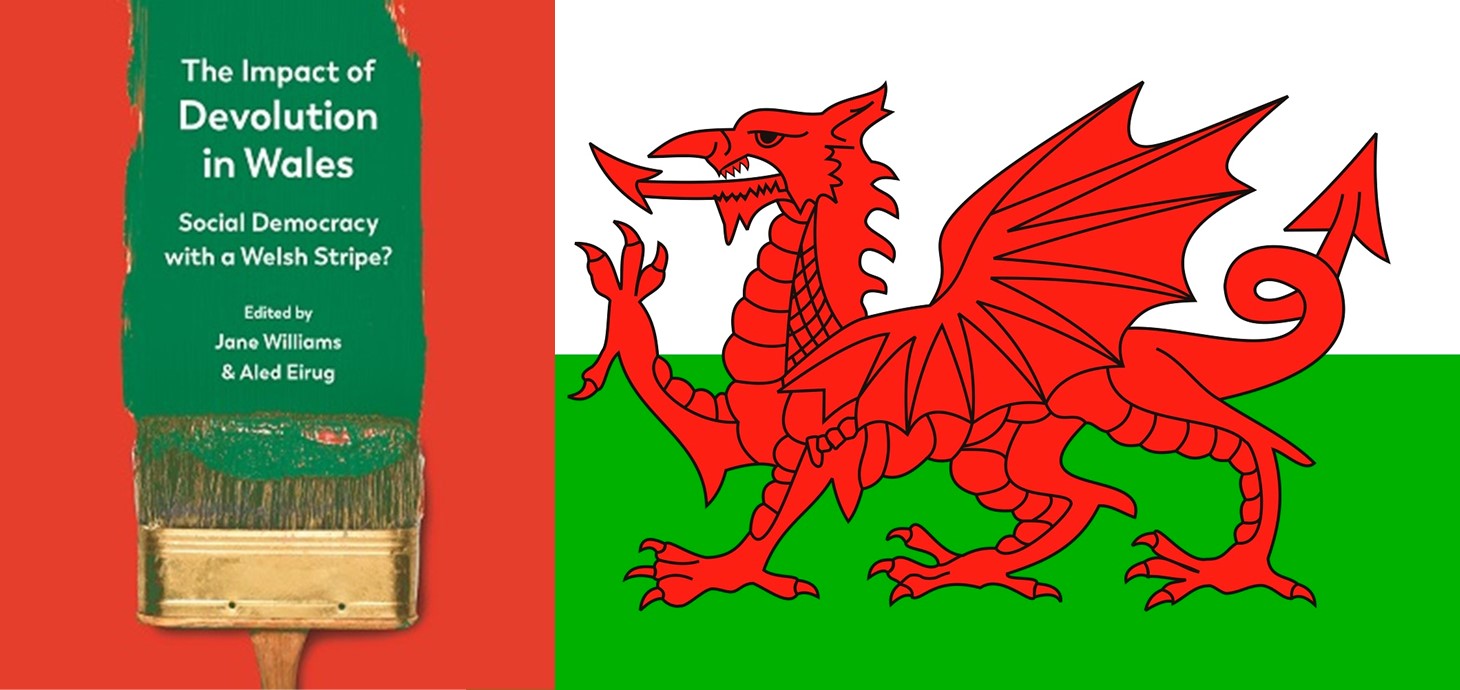
In the new book (cover - left) Professor Davies argues that Covid and Brexit combine with longstanding problems to present an unprecedented economic challenge for Wales
Wales’ economic prospects are more uncertain than at any time since the Assembly was established – and what is needed is more intervention by the Welsh Government and more collaboration by politicians at all levels, a leading expert argues in a new survey of the Welsh economy since devolution.
Gareth Davies, professor of business at Swansea University, sets out his case in a chapter on economics in a new book entitled, The Impact of Devolution in Wales: Social Democracy with a Welsh Stripe?
He describes how Covid and Brexit combine with longstanding problems to present an unprecedented economic challenge for Wales.
At the same time, the jigsaw of political relationships, so vital to Wales’ economic success, has never been so complex, with new entities like the City and Growth Deal regions, and increasingly fraught relationships between Wales and Westminster, and between the UK government and the EU.
Given this formidable set of challenges, the chapter argues that the current Senedd term is the most crucial for Wales’ economy since the dawn of devolution more than 20 years ago.
Drawing on his review of the period since devolution, Professor Davies identifies two core principles that he argues could be sharpened in efforts to strengthen Wales’s economy at this turbulent time.
The first is greater willingness to intervene in key economic sectors, though with great care and long-term perspective. The Welsh Government has already bought Cardiff airport, helping secure its future, and notably has now also nationalised Wales’ railways in a single network as Transport for Wales.
Professor Davies explains that as well as transport, there is scope for targeted intervention in other areas of critical infrastructure and skills:
“One very timely example is energy. The UK government pulled the plug on the tidal lagoon in Swansea Bay and on previous plans for a new Wylfa B nuclear power station in Anglesey. The Welsh Government could use its existing powers to do more to support major energy infrastructure projects like this.
Intervention is not simply about ownership, but also about orchestrating collaboration in key areas of the Welsh economy such as low-carbon energy, life sciences and the creative industries.
The award-winning SPECIFIC project, led by Swansea University, is an excellent example, with researchers and large and small companies working together to develop low-carbon buildings.
The lack of powers granted in the devolution settlement has limited Wales’ ability to act, though bold steps and pursuing a more interventionist sectoral approach have displayed the ambition to “make our own decisions and set our own priorities”.
The second core principle, argues Professor Davies, is to recognise economic interdependence, and therefore the importance of maintaining strong relationships within and beyond Wales.
He cites the example of Tata Steel, a giant of the Welsh economy, which has crucial trading links with the UK car manufacturing industry across the border in the Midlands and the north of England.
Professor Davies underlines why acknowledging economic interdependence is crucial:
“The Welsh economy is not in a sealed box, but part of a complex network of relationships. In Wales, we need to be aware at all times of this simple economic reality. At UK level we are starting to see the difficulties of reconciling Brexit with the inescapable fact of economic interdependence.
Wales’s economic prospects are interwoven with relationships within and beyond the UK. Unfortunately at present many of these are significantly deteriorating.
No matter how complex and fraught the political context, politicians in Wales and Westminster should be aiming for co-operation and collaboration, as these are essential for economic success.
In these uncertain times it is only by working together that we can build a resilient economy that delivers for our people.”
Professor Davies’ chapter is entitled “Economic Development in Wales – evolution and revolution”. The book, edited by Jane Williams and Aled Eirug, is published by University of Wales Press.
